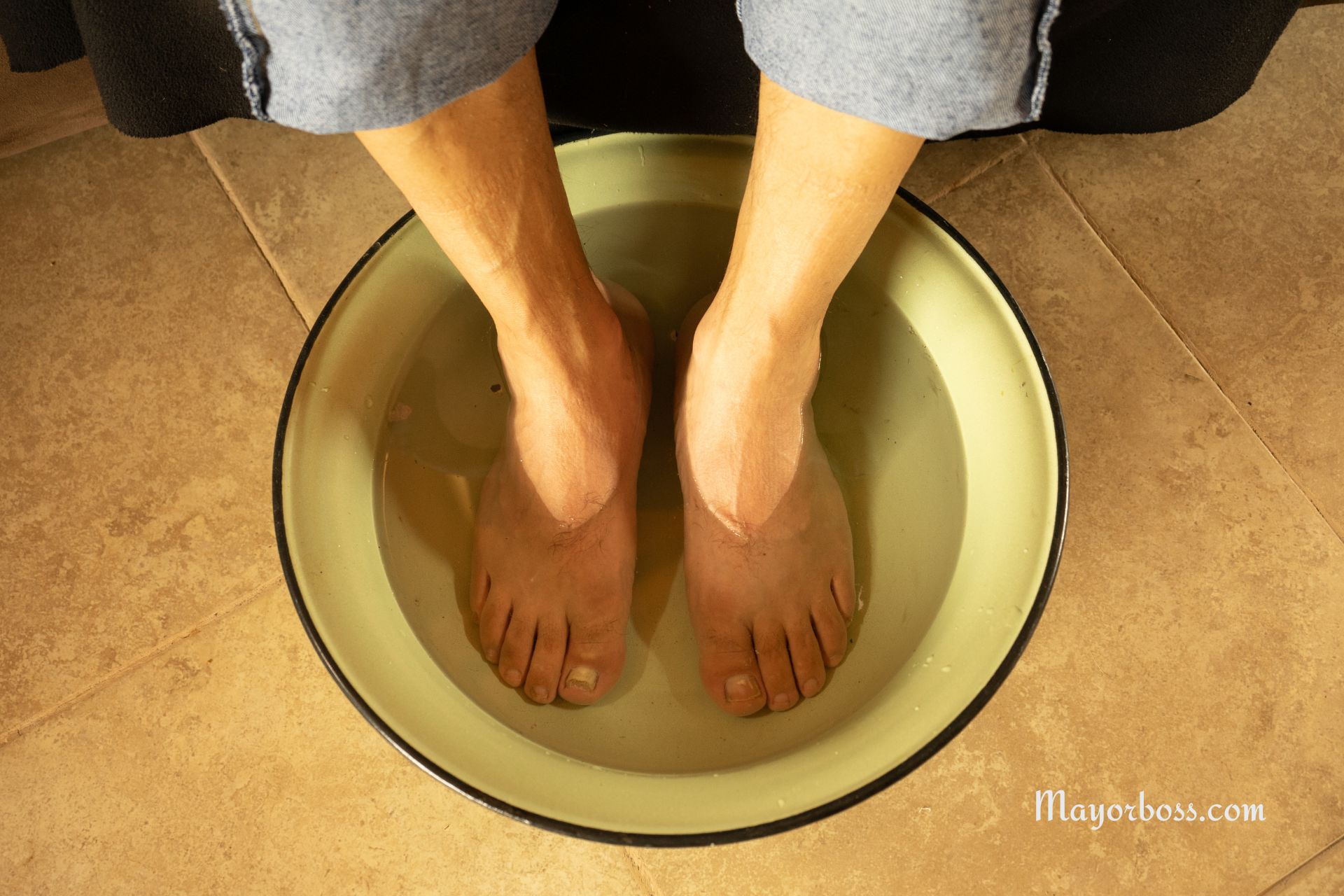Heal Your Body From Common Ailments by Soaking Your Feet in Vinegar Weekly

It might sound surprising, but soaking your feet in vinegar once a week can have remarkable benefits for your health. Vinegar, particularly apple cider vinegar or white vinegar, has been used for centuries for its healing properties. Foot soaks in vinegar are not just a simple at-home spa treatment – they can help relieve several ailments and improve your overall well-being. Here’s why you should consider adding a weekly vinegar foot soak to your self-care routine.
Vinegar Foot Soaks Help Fight Off Foot Odor and Fungal Infections
If you struggle with smelly feet or persistent fungal infections, such as athlete’s foot or toenail fungus, soaking your feet in vinegar might be the natural remedy you need. The acetic acid in vinegar forms an acidic environment that makes it difficult for bacteria and fungi to thrive. This helps eliminate unpleasant odors and kills off fungi that cause infections.
A regular vinegar foot soak can also help prevent these infections from coming back, keeping your feet fresh and healthy. Just be sure to use the vinegar in a diluted form, as undiluted vinegar might be too harsh on your skin.
How to Do It:
- Mix one part vinegar with two parts warm water in a large basin.
- Soak your feet for 15 to 20 minutes once a week.
- Dry your feet thoroughly afterward, especially between your toes, to prevent moisture buildup.
A Weekly Vinegar Soak Helps Soften Calluses and Rough Skin
Do you have hard, dry skin on your feet or painful calluses? A vinegar foot soak can help soften these tough areas and make them easier to remove. The acidic properties of vinegar work to exfoliate dead skin cells, thereby leaving your feet feeling soft and smooth.
Regular soaks can also help prevent the buildup of new calluses, especially if you wear tight shoes or stand on your feet for long periods.
How to Do It:
- After soaking your feet in vinegar for 15 to 20 minutes, use a pumice stone to gently rub away dead skin and calluses.
- Follow up with a moisturizing lotion to lock in hydration and keep your feet smooth.
Vinegar Soaks Can Reduce Foot Pain and Swelling
If your feet often feel achy or swollen after a long day, a warm vinegar soak can bring some much-needed relief. The warm water combined with vinegar’s anti-inflammatory properties can help reduce swelling and ease pain in your feet. It’s especially helpful for people with conditions like plantar fasciitis or heel pain, as it can help relax the muscles and tendons in the foot.
Vinegar soaks also improve circulation, which can reduce inflammation and promote faster healing.
How to Do It:
- Add Epsom salt to your vinegar soak for added relief.
- After soaking, elevate your feet for a few minutes to further reduce swelling.
Vinegar Can Help Heal Cracked Heels
Cracked heels can be painful and unsightly, but vinegar foot soaks may help speed up the healing process. The acetic acid in vinegar helps soften the dry, cracked skin while promoting the regeneration of healthy skin. Regular vinegar soaks, combined with proper moisturizing, can prevent cracks from deepening and becoming infected.
How to Do It:
- After your foot soaks, gently exfoliate the cracked areas with a pumice stone.
- Apply a thick moisturizer or petroleum jelly to the affected areas, and wear socks overnight to lock in moisture.
A Vinegar Foot Soak Can Help Soothe Skin Irritations and Infections
For those dealing with skin irritations like eczema or psoriasis on the feet, vinegar soaks may offer soothing relief. Vinegar’s natural antimicrobial properties help clean the skin, reduce inflammation, and promote healing. It can also help balance the skin’s pH levels, reducing flare-ups of certain skin conditions.
How to Do It:
- Make sure to dilute the vinegar well, especially if your skin is sensitive, to avoid irritation.
- Soak your feet for 10-15 minutes, and rinse them afterward with clean water to avoid any lingering vinegar scent.
Vinegar Soaks Can Help Improve Overall Circulation
Vinegar foot soaks are also beneficial for boosting circulation in your feet. This can be particularly helpful for people who suffer from poor blood circulation due to conditions like diabetes or peripheral artery disease. Improving blood flow can reduce discomfort, prevent further complications, and promote healing.
Warm vinegar soaks help dilate blood vessels, which encourages better circulation, leaving your feet feeling refreshed and energized.
How to Do It:
- Combine your vinegar soak with a foot massage to further improve circulation.
- Gently rub your feet in circular motions after the soak to stimulate blood flow.
Vinegar Soaks Promote Healthy Nails
In addition to the benefits for your skin, vinegar can also promote healthy toenails. If your toenails are prone to fungal infections, become thick, or grow slowly, a regular vinegar soak can help keep them in good shape. The antifungal properties of vinegar can clear up infections and promote stronger nail growth.
How to Do It:
- Soak your feet regularly to treat toenail infections, but be patient, as it may take a few weeks to see noticeable results.
- Clip and clean your nails after each soak for the best results.
Conclusion
A weekly vinegar foot soak is an easy, natural way to care for your feet and overall health. Whether you’re looking to fight off infections, soften calluses, or relieve pain, this simple remedy offers a range of benefits. Incorporate it into your self-care routine, and you’ll likely notice healthier, happier feet in no time. As always, if you have any underlying health conditions or sensitive skin, consult your doctor before trying this remedy.
